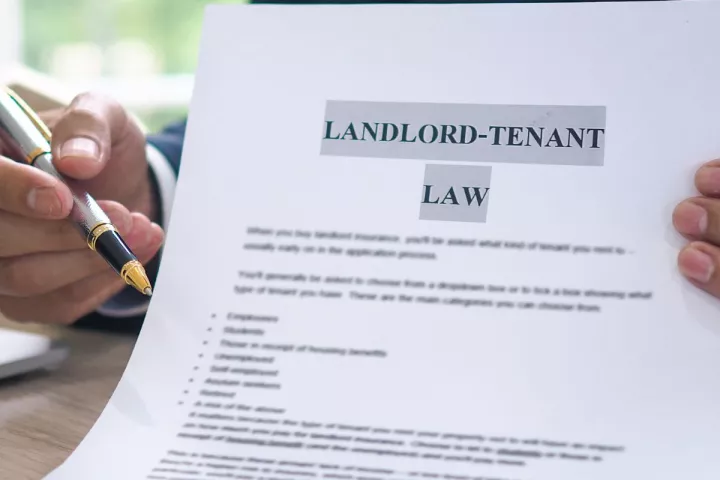If you find yourself in a situation where a letting agent is refusing to give you tenant details, there are several steps you can take to address it.
First, try to calmly communicate with the letting agent and express your concerns. If that doesn’t work, consider sending a formal request for the information. If necessary, seek legal advice to understand your rights and options.
Additionally, search alternative sources for obtaining the tenant details, such as online databases or reaching out to other tenants. Remember to prioritize your safety and rights throughout the process, and don’t hesitate to seek help if needed.
What Does It Mean When a Letting Agent Refuses to Provide Tenant Details?

When a letting agent won’t give out tenant details, it could be a sign of trouble between the landlord and tenant. Letting agents usually help landlords and tenants communicate smoothly, so it’s odd if they won’t share tenant info.
One reason might be worries about privacy laws. Letting agents have to follow strict rules about personal information. They might keep tenant details secret to avoid breaking these laws.
But tenants should know their rights in this situation. The refusal might also be because of issues with the property or tenant behavior, which the letting agent might not want to talk about. This lack of transparency can make tenants feel uneasy.
To solve this, tenants should talk to the letting agent to find out why they won’t share the info. Talking openly can clear up any misunderstandings or worries. If needed, tenants can get legal advice to understand their rights better and figure out how to get the information they need.
How can you effectively communicate with a letting agent who refuses to provide tenant details?

Effectively communicating with a letting agent who refuses to provide tenant details requires a strategic approach.
First, remain calm and respectful during your interactions, as getting agitated may hinder progress. Clearly express your concerns to the letting agent and inquire about the reasons behind their refusal. Actively listen to their response to better understand their perspective.
Next, try to find common ground by emphasizing the importance of the information you’re requesting and how it can help resolve any issues or concerns.
Propose alternative solutions, such as offering to sign a confidentiality agreement or providing assurances regarding data protection compliance.
If the letting agent remains unyielding, consider escalating the matter by involving their supervisor or requesting a formal meeting to discuss the issue further. Document all communication and interactions with the letting agent for reference.
Throughout the process, maintain professionalism and persistence while advocating for your rights as a tenant. Remember that clear and respectful communication is key to resolving conflicts and reaching a satisfactory resolution.
What steps can you take to formally request tenant details from a letting agent?
To formally request tenant details from a letting agent, follow these steps
Prepare a Written Request
Draft a formal letter or email addressed to the letting agent. Clearly state your request for tenant details and specify the information you require.
Reference Legal Obligations
Mention any relevant legal obligations or regulations that require the letting agent to provide tenant details upon request. For example, in the UK, you can reference Section 1 of the Landlord & Tenant Act 1985.
Set a Deadline
Include a reasonable deadline for the letting agent to respond to your request. This deadline should allow them sufficient time to gather the necessary information.
Provide Contact Information
Ensure that your contact information is clearly stated in the request letter or email. This allows the letting agent to reach out to you if they have any questions or need further clarification.
Send the Request
Once the request is prepared, send it to the letting agent via certified mail or email. This ensures that the request is documented and provides a record of communication.
Follow Up
If you do not receive a response within the specified deadline, consider following up with the letting agent to inquire about the status of your request. Persistence may be necessary to ensure compliance.
When should you seek legal advice if a letting agent refuses to give a tenant?

You should consider seeking legal advice if a letting agent refuses to provide tenant details in the following situations
- If the letting agent consistently refuses to provide tenant details despite your polite requests and attempts to resolve the issue amicably.
- If you’re unsure about your legal rights and obligations regarding obtaining tenant details from the letting agent.
- If the situation is complex or involves potential legal implications, such as concerns about privacy laws or discrimination.
- If the lack of tenant details significantly affects your ability to make informed decisions about renting or leasing a property.
- If attempts to communicate with the letting agent have been unsuccessful, and you’ve exhausted all other avenues for resolving the issue.
What alternatives can you explore if a letting agent refuses to share tenant details?
When faced with a letting agent who refuses to provide tenant details, consider the following alternatives
Review the Lease Agreement
Start by examining the lease agreement. Check if it specifies any rights regarding tenant information.
Send a Formal Letter
Politely request the landlord’s full name and address in writing. Mention that your letter is sent pursuant to section 1 of the Landlord & Tenant Act 19851. Give the agent a 21-day deadline to provide this information.
Property Redress Scheme (PRS)
If the agent remains uncooperative, consider filing a complaint with the Property Redress Scheme. Most agents want to avoid PRS complaints, so they may provide the details promptly.
Land Registry Search
Explore the Land Registry to find information about the property owner. While this won’t directly provide tenant details, it can lead you to the landlord.
Neighbours and Freeholder
Reach out to other neighbours or the freeholder (if applicable) to gather information about the landlord.
FAQ
Can a landlord change letting agent?
Yes, a landlord can change their letting agent whenever they want. They just need to check their contract with the current agent to see if there are any rules about ending the agreement.
Is a letting agent liable?
Yes, letting agents can be responsible if they break any rules in their contract or if they don’t do their job properly. But it depends on what happened and why.
How do I write a notice letter to my landlord UK?
To write a notice letter to your landlord in the UK, you should say you want to leave, tell them when you’ll move out, and follow any rules in your rental agreement.
How do I write an official letter to a tenant?
When writing a letter to your tenant, make sure to be polite, say why you’re writing (like if you’re raising the rent or fixing something), give any important details, and sign your name at the end.
How much notice does a landlord have to give a tenant to move out UK?
In the UK, landlords must usually give tenants 2 months’ notice if they want them to move out. But sometimes, they can give less notice if there’s a good reason, like if the tenant hasn’t paid rent or is causing problems.
Final thoughts
If a letting agent won’t give you tenant details, stay calm and keep talking to them. Check your lease and ask them formally for the info, mentioning the legal rules if you have to. If they still won’t help, try other ways like online databases or getting legal advice.
Remember your rights as a tenant and think about complaining if you have to. By doing these things and staying professional, you can deal with the situation well and make sure things are fair in your rental.



